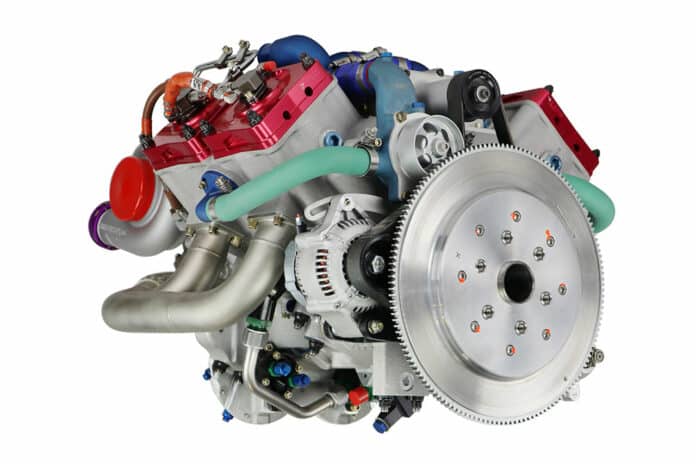DeltaHawk Engines, an American aircraft engine manufacturer, has recently announced that it is expanding its efforts to upgrade its revolutionary FAA-certified jet-fueled piston engine for general aviation aircraft to a zero-emissions technology. This is a big step towards sustainable aviation and reducing carbon footprint.
The company has recently completed advanced simulation analysis of a new, hydrogen-fueled variant of its engine family for multiple markets. The tests conducted have demonstrated the DeltaHawk’s highly adaptable engine architecture, which has the potential to operate efficiently on hydrogen fuel.
Besides aviation, DeltaHawk’s patented engine design has applications in a variety of markets – such as zero-emission vehicles (ZEV), other commercial power applications, and multiple defense platforms. In May, the company received FAA certification for its 180 horsepower DHK180 jet-fueled aircraft piston engine.
The use of proven internal combustion engine (ICE) technology with hydrogen fuel is a cost-effective alternative to more expensive fuel cell systems that rely heavily on infrastructure. Additionally, a hydrogen-fueled internal combustion engine is more tolerant of hydrogen impurities compared to fuel cells. This technology also enables leveraging existing knowledge and extensive service networks in ICE manufacturing.
The inverted-V engine block, turbocharging, supercharging, mechanical fuel injection, liquid cooling, direct drive, and 40 percent fewer moving parts are some of the features of the DeltaHawk ICE engine. The company says that its engine has better responsiveness and more usable torque than other engines in its class. It also has lower fuel consumption and lower carbon footprint. The engine can be used for different types of conventional aircraft and hybrid propulsion systems.
The DeltaHawk engine design boasts several advantages, such as lower development costs and faster time to market. It is also more durable and cost-effective due to the utilization of more mature technology. Furthermore, the engine design has a significantly reduced power degradation curve compared to current fuel cell technology, resulting in better fuel economy than fuel cells after the initial period.
These features combined pave the way for more rapid adoption of hydrogen power in various sectors, such as commercial trucking, delivery vehicle infrastructure, and military mobility applications, which are supported by recent global government incentives for hydrogen infrastructure.
DeltaHawk is not only developing aviation engines but also creating new variants of its engine family that can run on hydrogen fuel for other applications. The compact, lightweight, and robust DeltaHawk design makes this new engine family a perfect solution for hydrogen fuel. Unlike other commercial vehicle engine manufacturers who have tried to convert their ICE powerplants to hydrogen power, DeltaHawk’s testing in computer simulations shows superior performance to legacy four-stroke engine architectures.
“Environmental responsibility is a foundational pillar of our company,” said Christopher Ruud, Chief Executive Officer of DeltaHawk. “In the general aviation industry, our family of engines is creating a highly reduced net carbon footprint coupled with airborne lead removal, thanks in large part to their fuel efficiency and capability to burn next-generation sustainable aviation fuels (SAF). Now, with our planned ability to expand our engine family to include variants that will utilize hydrogen fuel in aviation, commercial, and military applications, we’ve taken another major step toward environmental sustainability, climate neutrality, and a zero-emissions future.”
